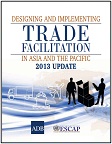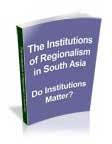 Expanding Opportunities: Toward Inclusive GrowthGDP in South Asia is estimated to grow at 5.6% in fiscal year FY2023 and 5.9% in FY2024, backed by the recovery in services and lower commodity prices. GDP growth in Bangladesh will decelerate to 5.2% in FY2022-2023 due to global economic uncertainty, before recovering to 6.2% in FY2024. In Bhutan, GDP is projected to expand at 4.5% in FY2022-2023 as the further reopening of borders support growth in industry and services. GDP growth in India will moderate to 6.3% in FY2023-2024 following slower growth in consumption. Maldives is seeing a return to the tourism sector's pre-pandemic levels with GDP growth projections in FY2023 at 6.6%. Growth in Nepal will slow to 4.1% in FY2023 following import restrictions, before rising to 4.9% in FY2024. In Sri Lanka, amid fiscal and external imbalances, GDP growth is estimated at -4.3% in FY2023 and 1.2% FY2024. In Southeast Asia, the Myanmar Economic Monitor projects Myanmar's economic recovery accelerating to 3% in the year to September 2023 following growth in industry and services. Author: World Bank Year: 2023 Download Tags: WB, Bangladesh, Bhutan, Sri Lanka, Services, India, Maldives, Myanmar, Nepal Services for Trade Competitiveness: Country and Regional Assessments of Services TradeThis book applies methodologies for assessing competitiveness of countries’ services sector. It examines the types of barriers to services in the regulatory environment and identifies the policy implications. It aims to guide policymakers in the area of services in international trade. The chapter on diversifying Nepal’s economy assesses the country’s trade potential in services. Using the Services Trade Competitiveness Diagnostic toolkit, it identifies policy measures that can help Nepal identify strategies for greater integration in the global marketplace. Author: Claire Hollweg and Sebastian Saez, eds. Year: 2019 Download Tags: Energy, Nepal, Services, Trade, WB Financing Infrastructure in Asia and the Pacific: Capturing Impacts and New SourcesThis book looks at the impact of infrastructure investment on economic and social indicators, and shows how infrastructure investment can increase output, taxes, trade, and firm productivity. One study in the book shows that trade facilitation reforms in South Asia resulted in increased intraregional trade and trade with other regions. The book proposes innovative modes of financing for infrastructure needed to drive sustainable growth. Author: Naoyuki Yoshino, Matthias Helble, and Umid Abidhadjaev (editors) Year: 2018 Download Tags: ADB, Infrastructure, Services, South Asia, Trade Facilitation Asia-Pacific Trade and Investment Report 2017: Channelling Trade and Investment into Sustainable DevelopmentThis report provides analyses of trends and policy developments in trade in goods and commercial services in Asia-Pacific. It shows that merchandise trade remained subdued in 2016, with South and Southwest Asia accounting for 8% of Asia-Pacific exports and 12% of Asia-Pacific imports. Foreign direct investments inflows In South and South-West Asia decreased slightly by 4% to $66 billion in 2016. The report also argues for targeted trade and investment policies that strike a balance between economic development and social and environmental development. Author: United Nations Economic and Social Commission for Asia and the Pacific Year: 2017 Download Tags: Trade, Investment, FDI, ASEAN, India, Services, South Asia, Sri Lanka, Sustainable Development Goals, UNESCAP Win-Win: How International Trade Can Help Meet the Sustainable Development GoalsThis book aims to demonstrate to policy makers how international trade can contribute to achieving the Sustainable Development Goals (SDGs). Trade can promote income growth, which can then support sustainable development. In addition, there are also direct links between trade and sustainable development, such as trade’s effect on the price and availability of health, education, energy, and other important services. This book maps out a triple-win scenario where good trade policy spurs international trade, contributes to development-friendly outcomes, and helps achieve the SDGs. Author: Matthias Helble and Ben Shepherd, eds. Year: 2017 Download Tags: Bangladesh, India, Maldives, Nepal, Services, South Asia, Sustainability, Sustainable Development Goals Trade and the Post-2015 Development AgendaTrade and services are instrumental in achieving the Sustainable Development Goals. While openness to trade improves economic growth prospects, sound trade policy and efforts to reduce the costs of trade are necessary to bridge the link between trade growth and poverty reduction. For low income countries, there is still great scope to leverage trade for development, and pursue better access to a products and services to improve welfare, which can significantly contribute to economic development. In keeping with the post-2015 development agenda, this paper recommends sustained efforts by governments to reduce trade costs, support policy reforms to improve services trade, and focus on trade cost reduction and services trade facilitation. Author: Bernard Hoekman Year: 2017 Download Tags: Trade Facilitation, Services, Sustainable Development, Poverty Reduction, ADB Research Handbook on Trade in ServicesThis Research Handbook explores the latest developments in services trade by drawing on insights from experts with a range of perspectives, including empirical economics, law and global political economy. The book further chronicles the rising stakes and involvement of developing countries in global services trade, notably their growing insertion in global value chains, as well as the latest advances and remaining challenges in the statistical measurement of trade in services. Author: Pierre Sauvé and Martin Roy, editors Year: 2016 Download Tags: Services, Trade, Economics, Trade Facilitation, Trade Policy Trade in Services: The Most Dynamic Segment of International TradeThe World Trade Organization (WTO) marks its 20th anniversary with a series of brochures to assist understanding of specific WTO agreements. This publication focuses on the WTO General Agreement on Trade in Services (GATS), which provides the legal ground rules for international trade in services, allowing WTO members the flexibility to open their markets to foreign competition to the extent of their choosing. GATS entered into force in 1995 and remains the only set of multilateral rules covering international trade in services. This brochures provides an overview of the different modes by which services are traded, commitments taken by WTO members, and developments enhancing GATS commitments and information on trade in services. Author: World Trade Organization Year: 2015 Download Tags: Services, Trade Facilitation, Economic Growth, WTO SAARC: The Way AheadThis Observer Research Foundation Issue Brief examines the South Asia Association for Regional Cooperation as a regional grouping that is almost three decades old. It discusses trade arrangements such as the South Asian Preferential Trading Arrangement aimed towards a higher level of intraregional trade liberalization and economic cooperation, including the South Asia Free Trade Area for reduction of Customs duties on traded goods. The paper further studies areas of energy, connectivity, foreign direct investment, trade in services and subregional cooperation. The South Asia Subregional Economic Cooperation Program is offered as one of the steps in the direction of having a viable option for subregional cooperation. Author: Jayshree Sengupta Year: 2015 Download Tags: Regional Cooperation, SAARC, Trade, Connectivity, Energy, FDI, Investment, Free Trade Agreements, Services, South Asia The ASEAN Economic Community: A Work in ProgressThis publication explores the barriers and impediments to the realization of an ASEAN Economic Community (AEC), and to what extent its self-imposed deadline of 2015 for achievement of an AEC is more of a milestone of progress than a firm target. It examines whether the AEC is achievable, the obstacles faced in achieving it, and the measures required to help it become a reality. Author: Asian Development Bank Year: 2013 Download Tags: Regional Cooperation, Regional Integration, Trade Policy, ASEAN, Economic Integration, Regional Cooperation, ADB, Regional Integration, Services, Global Value Chains, Non-Tariff Measures, Asia-Pacific Trade Agreement, India, Trade Facilitation Deepening Economic Cooperation between India and Sri LankaThis book analyzes the performance and impact of the India-Sri Lanka free trade agreement over the past decade and suggests the way forward. India became an important source of imports for Sri Lanka immediately after the implementation of the free trade agreement. Author: Asian Development Bank Year: 2013 Download Tags: Regional Cooperation, Trade Policy, India, Sri Lanka, Trade, Economic Cooperation, India-Sri Lanka Free Trade Agreement, Free Trade Agreements, Services, Trade Facilitation, Exports, Import  Designing and Implementing Trade Facilitation in Asia and the PacificThis reference book was published to support the implementation of trade facilitation measures and reforms in Asia and the Pacific. It includes operational guidance on assessing the status of trade facilitation, the measures and reforms needed, how to design trade facilitation initiatives, and how to implement them at national and regional levels. The book is intended to assist policy makers, practitioners, and economists by bridging the gap between theory and practice. The revised 2013 version includes updated statistical figures and data, information on actual trade facilitation policies and practices, and the most recent research on trade facilitation. Author: Asian Development Bank / United Nations Economic and Social Commission for Asia and the Pacific Year: 2013 Download Tags: Trade Facilitation, Regional Cooperation, Regional Integration, Trade Policy, Economic Corridor, Sanitary and Phytosanitary Measures, Technical Barriers to Trade, Revised Kyoto Convention, Customs, Customs Valuation, Bangladesh, Bhutan, India, Nepal, Maldives, Sri Lanka, Services  The Institutions of Regionalism in South Asia - Do Institutions Matter?This paper assesses the contribution of key institutions of regional cooperation and integration (RCI) in South Asia, and suggests ways in which the Asian Development Bank and other development partners can strengthen their support. It attempts to enhance understanding on the interplay between politics and RCI, including how good bilateral political relations or improvements have advanced RCI. With the overall political environment growing increasingly open to RCI, the paper suggests the time has come for the South Asian Association for Regional Cooperation (SAARC) to consider strengthening the capacity of the SAARC Secretariat to meet the growing challenges and work load of managing the anticipated increase in RCI. Author: Prabhu Ghate Year: 2011 Download Tags: Regional Cooperation, Regional Integration, Development, SAARC, Trade, Services, Trade Facilitation, Energy, Free Trade Agreements, SAFTA, Bangladesh, Bhutan, India, Maldives, Nepal, Sri Lanka, Transport Quantification of Benefits from Economic Cooperation in South AsiaThe study examines the implication of the South Asian Free Trade Agreement (SAFTA) on South Asian countries and on the region as a whole, employing both a quantitative and qualitative assessment on the outcomes of SAFTA. The research aims to provide support in the formulation of concrete policy measures for trade to ensure greater gains for the region, while at the same time mitigating potential negative impacts. Economic and social assessments through analytical tools and rational causal chain analysis further enrich the study. Author: Asian Development Bank / United Nations Conference on Trade and Development Year: 2008 Download Tags: Economic Corridor, Regional Cooperation, Regional Integration, SAFTA, Free Trade Agreements, Trade Facilitation, Transport, Services, SAARC, Bangladesh, Bhutan, India, Maldives, Nepal, Sri Lanka |



